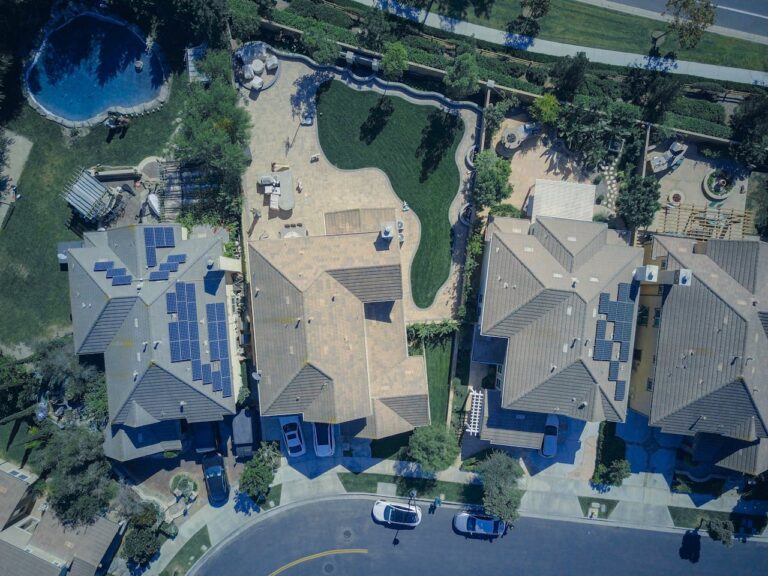Introduction to the Wholesaling Real Estate Glossary
Welcome to our Wholesaling Real Estate Glossary. If you’re stepping into the world of real estate wholesaling, this glossary is your go-to guide. Here, we break down the key terms you’ll encounter on your journey. Whether you’re a real estate wholesaler or just starting out, understanding these terms is crucial for success.
Wholesaling real estate can seem daunting at first. However, with the right knowledge, you can navigate it confidently. This glossary simplifies complex terms, making them easy to understand. You don’t need to wade through jargon or technical language. Instead, you’ll find clear, concise explanations that anyone can grasp.
As you explore the Wholesaling Real Estate Glossary, you’ll discover definitions for everything from “assignment fee” to “wholesale price”. Each term is explained in a way that’s both engaging and informative. We’ve used natural language to ensure these concepts are relatable.
Moreover, we know that real estate investing is all about timing and precision. Therefore, having a solid understanding of these terms will empower you to make informed decisions quickly. This glossary isn’t just a list of definitions; it’s a tool to help you thrive in the competitive world of real estate wholesaling.
So, dive in and start learning. The more familiar you become with these terms, the more confident you’ll be in your real estate ventures. Remember, knowledge is power. And with this Wholesaling Real Estate Glossary, you’re well on your way to becoming a savvy investor.
Make a wrong turn? For our our Glossary of Key Terms for Home Sellers click here.
Now, let’s get started!
A
After Repair Value (ARV)
The after repair value (ARV) is the estimated price a property will sell for after renovations are completed. It’s a key metric for evaluating the potential profitability of a deal, especially for flippers.
How do you calculate ARV?
Assignment Fee
The assignment fee is the profit a wholesaler earns by assigning their rights under a property purchase contract to another buyer, typically an investor. This fee makes wholesaling profitable—it’s essentially the wholesaler’s commission for finding and securing the deal.
Want to learn how to calculate it?
Assignment of Contract
Assignment of contract allows a wholesaler to transfer their contractual rights and obligations to purchase a property to another buyer. The new buyer steps into the shoes of the original buyer and takes over all responsibilities related to the purchase agreement.
Curious about the process?
As-Is Condition
When a property is sold in as-is condition, the seller does not make any repairs or improvements before the sale. Therefore, the buyer accepts the property in its current state, warts and all. This can speed up transactions but requires buyers to be diligent about potential issues.
Wondering about the risks?
B
Buyer’s List
A buyer’s list is a curated collection of investors and buyers interested in purchasing wholesale properties. A strong buyer’s list is crucial for quick sales and successful wholesaling transactions. It’s your go-to resource when you need to offload properties quickly.
Need tips on creating one?
C
Capital Gains Tax
Capital gains tax is the tax on the profit from the sale of an asset like real estate. Therefore, understanding and planning for capital gains tax is essential for maximizing your investment returns.
How do you minimize capital gains?
Cash Buyer
A cash buyer is an individual or entity that purchases properties without needing mortgage financing. This often speeds up the transaction process significantly since there are no lender approval timelines to worry about.
Interested in finding cash buyers?
Contingency
A contingency is a condition that must be met for a real estate contract to become binding. Common contingencies include financing, inspection, and appraisal conditions. They provide an exit strategy for buyers if certain conditions aren’t satisfied.
Want examples of common contingencies?
D
Double Closing
Double closing involves two back-to-back real estate transactions. The wholesaler first closes on the purchase of the property and then immediately sells it to a new buyer. This method allows the wholesaler to take title to the property, even if only for a short time.
Curious about how it works?
Due Diligence
Due diligence is the process of thoroughly investigating a property before completing the transaction. This includes inspecting the physical condition, reviewing legal documents, and ensuring there are no hidden issues. It protects both buyers and sellers from unexpected problems.
Looking for a due diligence checklist?
E
Earnest Money Deposit (EMD)
An earnest money deposit (EMD) is a good faith deposit made by the buyer to show serious intent to purchase the property. This money is typically held in escrow and applied to the purchase price at closing. If the deal falls through, the contract terms determine the fate of the EMD.
How much should you offer?
End Buyer
The end buyer is the final purchaser who takes ownership of the property. Often, they are investors looking to renovate and resell (flippers) or rent out the property (landlords). Identifying reliable end buyers can streamline your wholesaling process.
Need help identifying end buyers?
Escrow
Escrow is a neutral third party that holds funds or documents until all conditions of the sale are met. This ensures that both the buyer and seller fulfill their contractual obligations. It adds a layer of security to real estate transactions.
Want to know more about escrow services?
F
Fair Market Value (FMV)
Fair market value (FMV) is the estimated price at which a property would sell on the open market. Comparing similar properties that have recently sold in the area determines this value. Understanding FMV helps in setting realistic prices and making sound investment decisions.
How do you calculate FMV?
Financing Contingency
A financing contingency allows the buyer to back out of the purchase if they cannot secure a loan. This clause protects buyers from being financially obligated if their mortgage application is denied. It’s a safety net that many buyers rely on.
What are the details?
H
Hard Money Loan
A hard money loan is a short-term, high-interest loan primarily used for real estate transactions. These loans are typically easier to obtain than traditional mortgages and are often used by investors looking to flip properties.
Thinking of using hard money?
I
Inspection Period
The inspection period is the timeframe allocated for the buyer to conduct inspections and due diligence on the property. During this period, the buyer can uncover potential issues and decide whether to proceed with the purchase or renegotiate terms.
How long should it last?
L
Lien
A lien is a legal claim against a property for unpaid debts. Before a property can be sold, the seller must resolve all liens. Liens can arise from unpaid taxes, contractor work, or other debts. Addressing them promptly prevents complications during sales.
Concerned about liens?
M
Market Value
Market value represents the price a property would likely sell for in a competitive market. Factors such as location, condition, and comparable sales influence it. Knowing the market value helps sellers price their properties appropriately and helps buyers make informed offers.
How do you determine it?
Motivated Seller
A motivated seller is an individual who is eager to sell their property quickly, often due to personal or financial circumstances. Reasons can include financial distress, relocation, inheritance, divorce, or downsizing. These sellers are typically more flexible on price and terms, making them key targets for real estate investors looking for good deals. Identifying and working with motivated sellers can lead to faster transactions and better investment opportunities.
O
Off-Market Property
An off-market property is not publicly listed for sale. Wholesalers often seek these hidden gems through networking, direct mail campaigns, or other marketing strategies. Off-market deals can offer better pricing and less competition.
Strategies to find off-market properties?
P
Purchase Agreement
A purchase agreement is a legally binding document outlining the terms and conditions of the sale between the buyer and seller. It serves as the blueprint for the transaction, detailing price, contingencies, and closing dates. Clear agreements prevent misunderstandings.
Need a template?
R
Repair Costs
Repair costs are estimates for fixing up a property to make it marketable or livable. Accurately estimating repair costs is crucial for determining the profitability of a deal. Overestimating can scare away buyers, while underestimating can lead to financial losses.
How do you estimate accurately?
S
Seller Financing
Seller financing occurs when the seller provides a loan to the buyer to facilitate the purchase. This can make it easier for buyers to acquire property without traditional bank financing. It’s a flexible option that can benefit both parties.
Is it right for you?
Subject-To
A subject-to deal means the buyer takes over the seller’s existing mortgage payments instead of obtaining a new loan. This method can be advantageous for both sellers who need to exit their mortgage quickly and buyers who want easier financing terms.
Learn how it works.
T
Title Company
A title company verifies the legitimacy of the property’s title and handles the transfer of ownership from seller to buyer. By ensuring no legal issues with the property, they make sure the transaction proceeds smoothly.
Need to choose a title company?
Title Search
A title search examines public records to confirm the property’s legal ownership and identify any claims or liens against it. It’s a critical step in ensuring a clear title before buying a property. Without it, buyers risk inheriting unresolved legal issues.
What does it involve?
Transactional Funding
Transactional funding is short-term financing used to facilitate double closings in wholesale deals. It allows wholesalers to purchase and then quickly sell properties without using their own capital. It’s a bridge loan that makes transactions smoother.
Wondering if you need it?
V
Virtual Wholesaling
Virtual wholesaling involves conducting wholesale deals remotely, using technology to manage each step of the process. This expands your reach to markets beyond your local area and allows you to operate from anywhere.
Ready to go virtual?
W
Wholesale Price
The wholesale price is the below-market price at which a wholesaler acquires a property. This price leaves room for the wholesaler to add value and make a profit when selling to an end buyer. It’s the foundation of a profitable wholesale deal.
How do you find wholesale deals?
Wholesaler
A wholesaler is an investor who contracts to purchase properties and then assigns or resells the contract to another buyer for a profit. They act as intermediaries, facilitating the transaction while making a margin on the deal.
Want to become a wholesaler?
Wholesale Real Estate
Wholesale real estate is a strategy where the wholesaler finds undervalued properties, contracts them, and then transfers them to end buyers for a profit. It’s a low-risk way to get started in real estate investing without significant capital.
For more details click here?
By mastering these key terms, you’ll navigate the world of wholesaling real estate with confidence. Each term is a building block toward your success. Explore further to deepen your understanding and elevate your game!






